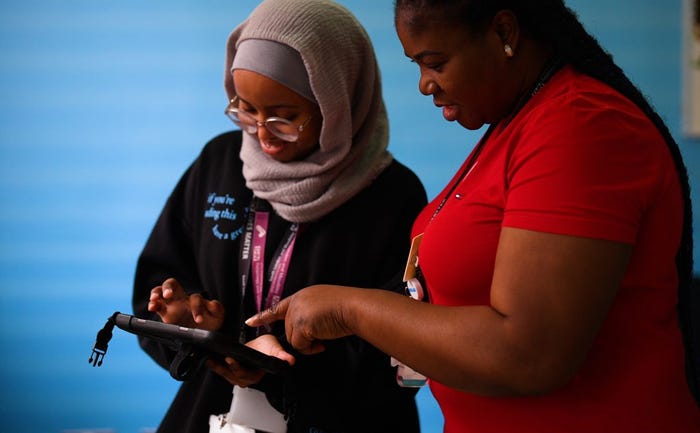VMO2 and Nokia help create UK’s ‘first 5G connected hospital’VMO2 and Nokia help create UK’s ‘first 5G connected hospital’
Virgin Media O2 and the NHS have collaborated to build the UK’s ‘first 5G connected hospital’ which it claims will transform healthcare.
July 4, 2022

Virgin Media O2 and the NHS have collaborated to build the UK’s ‘first 5G connected hospital’ which they claim will transform healthcare.
The Maudsley Smart Hospital and Maudsley Smart Pharmacy trials are funded by NHS digital with tech provided by VMO2 and Nokia, and are designed to explore the efficiency, safety and security benefits of using 5G-connected technologies in hospitals, across the usual catch-all 5G adjacent sectors of IoT, AR and AI.
Two wards at Bethlem Royal Hospital in South London are now using ‘dedicated, near-real-time connectivity to power e-Observations, where clinicians use handheld devices to update patient records, saving valuable time and improving accuracy.’ It’s not clear exactly what that means, but it seems to be implied interacting with the gear over 5G will be more efficient than using the hospital’s wifi – which could be true of course depending on the state of the wifi.
An AR tool called Remote Expert will allow maintenance workers in other hospitals to pop on a helmet and remotely help fix problems in some way, while an AI tool called Spatial Insights generates anonymised heat maps of crowd movement from CCTV footage, which will apparently help them to better plan layouts in the future. There is also talk of smart devices and monitoring to reduce medicine waste and track the air quality in wards, which sounds useful enough.

“The NHS has been a cornerstone of British society for nearly 75 years, and today, we’re proud to announce the switch-on of the UK’s first 5G-connected hospital – showing how next-generation technology can help create a smarter, modern healthcare service for everyone,” said Mike Smith, Large Enterprise and Public Sector Director at Virgin Media O2 Business. “Our aim is to map out the rollout of wireless and smart hospital connectivity across the NHS estate over the next three to five years. Trials like this are the embodiment of our mission to upgrade the UK, and a clear sign of the role we can play in helping to shape the NHS of the future.”
Stuart MacLellan, Acting Chief Information Officer at South London and Maudsley Foundation Trust added: “Exploring and using the latest technology supports our core strategic aim to deliver outstanding mental health care for people who use our services, their carers and families. We are proud to be partnering with Virgin Media O2 Business to create the UK’s first 5G-connected hospital, which enables us to use digital innovations to improve patient outcomes. This is a very exciting step forward.”
That’s all fine and well, and some of the above goes a bit further to demonstrating how 5G might be of more practical use in a medical setting than some previous use cases we’ve been presented with (remote surgeons operating on people miles away, for example). Bells, whistles, and 5G connected gadgets aren’t going to impress anyone who’s been waiting in A&E for six hours or on a waiting list for six months.
But if the NHS and its tech partners can demonstrate with these trails how the implementation of AI heatmaps for planning layouts and AR headsets for maintenance workers can start taking chunks out of how long it takes to be treated for immediate and long term conditions, then everyone will surely be behind rolling it out elsewhere. If it doesn’t, then the point of it all this tech investment seems less obvious.
Get the latest news straight to your inbox. Register for the Telecoms.com newsletter here.
About the Author
You May Also Like










.png?width=300&auto=webp&quality=80&disable=upscale)


_1.jpg?width=300&auto=webp&quality=80&disable=upscale)